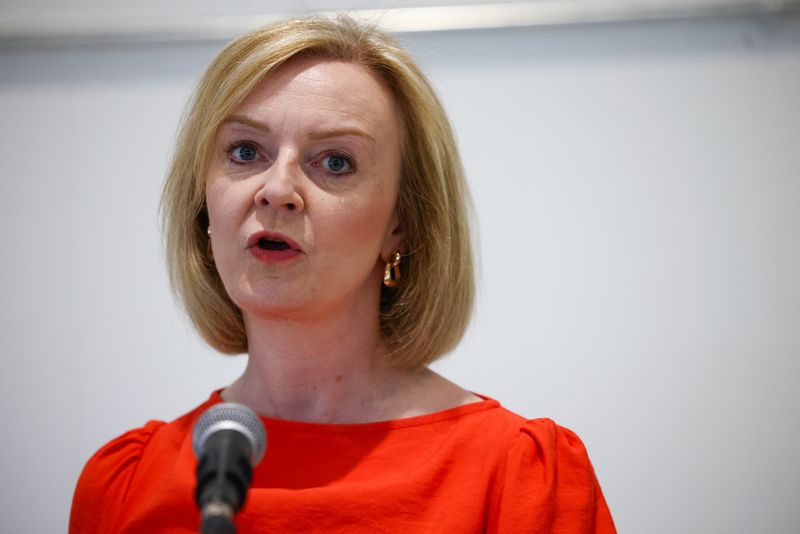By Geoffrey Smith
Investing.com – U.K. Prime Minister Liz Truss retreated further from her controversial plans for wide-ranging tax cuts on Friday, firing her Treasury chief and reinstating a rise in corporate income tax rates that she had intended to scrap.
At the end of a chaotic week for British politics and financial markets, Truss acknowledged at a brief press conference that the pressure from the financial markets had been too much to bear.
"Because of current market issues, we have to deliver the mission in a different way," Truss said.
The reinstatement of the rise in corporation tax will partly plug the hole in public finances made by the ill-fated 'mini-budget' of Truss's close friend and ally Kwasi Kwarteng, whom she replaced as Chancellor of the Exchequer with the less radically minded Jeremy Hunt earlier on Friday.
Truss called the measure an 18 billion pound ($20 billion) "downpayment" on a pledge to ensure that Britain’s public debt falls as a proportion of gross domestic product in the medium term.
But her "different way" also appears more likely now to include spending cuts - at least in real, inflation-adjusted terms - that Truss has repeatedly ruled out in the last couple of weeks.
In her introductory statement, Truss noted - without elaborating or being challenged on it by the journalists in the room - that "spending will rise less rapidly than previously planned."
Truss had already been forced to abandon Kwarteng's plans to cut the top rate of personal income tax for the U.K.'s top 2% of earners, after a revolt by her own party's members of parliament, and a sharp drop in the party's opinion polls. However, the corporation tax measure is a much bigger deal, raising nine times as much in revenue.
The pound stayed near its low for the day but U.K. government bond yields came off their lows in response to the news, as the market absorbed the fact that over half of the tax cuts planned by Truss and Kwarteng - as well as up to £60 billion in energy-related subsidies over the next six months - are still in place.
Markets had freaked out in September at the scale of extra borrowing implicit in the government's new forecasts, and by the government's refusal to let the Office for Budget Responsibility vet its figures. The OBR has badly overstated the government's deficit and borrowing needs in its forecasts over the last two years, prompting suspicions of disloyalty among parts of the Conservative Party.
At end of Truss's press conference, the pound stood at $1.1190, just over half a cent lower than where it was before Kwarteng's 'mini-budget'.
The damage to the credibility of U.K. policy was however still evident in the bond market, where the yield on the benchmark 10-Year Gilt rose back to 4.20%, nearly 90 basis points up from its pre-Kwarteng levels. Kwarteng had tried to blame the abrupt selloff in government debt on conditions in the global markets, but the yield on the comparable 10-Year U.S. Treasury has risen by less than half that amount in the same time.
Samuel Tombs, an economist with Pantheon Macroeconomics, said that the government's credibility was "not even close to being restored yet, despite the change of Chancellor."
Resolution Foundation Director Torsten Bell tweeted meanwhile that "Before the u-turn, there was NO route to credibly closing the fiscal hole - now it probably can be closed at the price of some hefty spending cuts."
